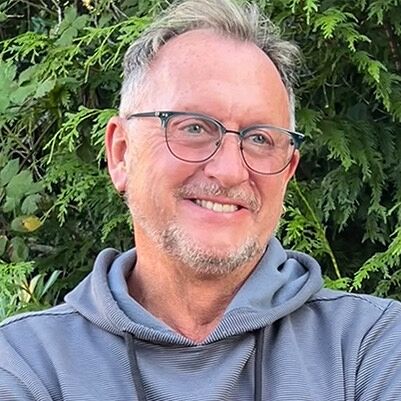
The Hate Game: Screaming in the Silence is your memoir sharing the experiences you underwent at the Knoll School for Boys in Hove, Sussex, back in the 1970s and the bullying that was inflicted on you for your beliefs. Why was this an important book for you to write?
To clarify. I wasn’t bullied for my beliefs. I was bullied because I was young, an ‘outsider,’ and was a late developer. Any pupils in that category were labelled as “Jews,” by the “superior” bullies.
I had shared stories with numerous people and had pushed memories to the back of my mind. PTSD does that. Later in life, as a social worker in child protection, I came face to face with my past on several occasions. I had a “Eureka” moment interviewing a young teen who had (thankfully) failed to take her own life: her story was my story, and I started to come to terms with the horrors that had transpired during my adolescence. My extended (British) family were very resistant to me sharing truths with the world as it wasn’t the “British” way to be transparent about the past. The school and personal experiences were shocking, and rather than bury them, I chose to tell my story. The writing of The Hate Game was cathartic, albeit painful.
I appreciated the candid nature with which you told your story. What was the hardest thing for you to write about?
Everything. I felt ashamed about the bullying and abuse at school. I hadn’t told my wife and children about the historical sexual assault, so that was a challenge (despite working in a field where I encourage transparency). The death of my father and later writing about my mum brought up feelings and emotions that I had buried. I also felt shame about laughing through the dark times but understood that it is (and still is) a coping mechanism. One of the hardest things about writing a memoir is the judgment that may emanate from others. However, the overwhelming gratitude that my story could be told outweighed the negatives by a country mile.
What were some ideas that were important for you to share in this book?
It is crucial to share one’s feelings with a trusted adult. Unfortunately, I did not know any adults I could trust. The teachers were more abusive than the students, and I couldn’t rely on anyone in authority. Even today, children and young people tend to keep their distress to themselves, a concerning trend I’ve observed in my work in child protection. It is imperative for adults, particularly parents, to build a strong, trusting relationship with children. Despite my love for my family, they were not the safe haven I needed to confide in.
What do you hope is one thing readers take away from your story?
Amidst the darkness, pain, and feelings of utter hopelessness, there is a beacon of light at the end of the tunnel. I was determined to survive and, somehow, thrive. It’s imperative to foster open communication with your children rather than hastily judging them for their acting-out behaviours. There is often a deep-rooted cause, and dismissing it as merely ‘hormones’ will cause further isolation for the child or youth. My own experiences have instilled in me resilience and a profound sense of empathy for those in need, whether they belong to minority groups or are families and children in crisis. As a result of my adverse childhood experiences, I have been able to help and empower numerous vulnerable young people. My transformation from trauma to triumph, guided by a profound encounter with God, has equipped me to make a meaningful impact on the lives of others.
Author Links: GoodReads | X (Twitter) | Facebook | Instagram | Website | Amazon
At school, survival wasn’t just about fitting in—it was about making it through the day with his dignity intact. The first time they shoved Gary’s head into the toilet bowl, he questioned how much more he could take. By the time they drew a swastika on his forehead, he stopped wondering.
In the backdrop of 1970s England, Gary navigates the chaotic seas of adolescence in the English coastal town of Hove. With humour and a delicious sense of naivety, he steers through a life marked by a blend of love and dysfunction, anchored by his loving and quirky mother and his deeply cherished father. But beyond the warmth of home, school is a much darker and crueller reality. At Knoll Boys, Gary confronts a relentless and vicious bullying that pushes his spirit and resilience to the brink. The horrors he endures are not just physical—they are ritualistic and dehumanizing, the cruelty seemingly unending. Yet, Gary’s resilience shines through, a testament to the human spirit’s capacity to endure.
Despite the bruises and hate-filled taunts, Gary discovers moments of unexpected joy, like the awkward thrills of first love and the surprising strength that begins to grow within him. As he navigates his family’s unpredictable antics and the dark corridors of his school, Gary’s journey becomes one of ultimate transformation—a testament to his unbreakable spirit and a beacon of hope for all who face similar challenges.
The Hate Game is a raw and profoundly moving coming-of-age memoir that explores the power of laughter and love. It’s a story that will leave you rooting for Gary, laughing with him, and inspired by his indomitable will to rise above the pain and become the change he longed for.
#Darkness #LITERARY #TITAN
